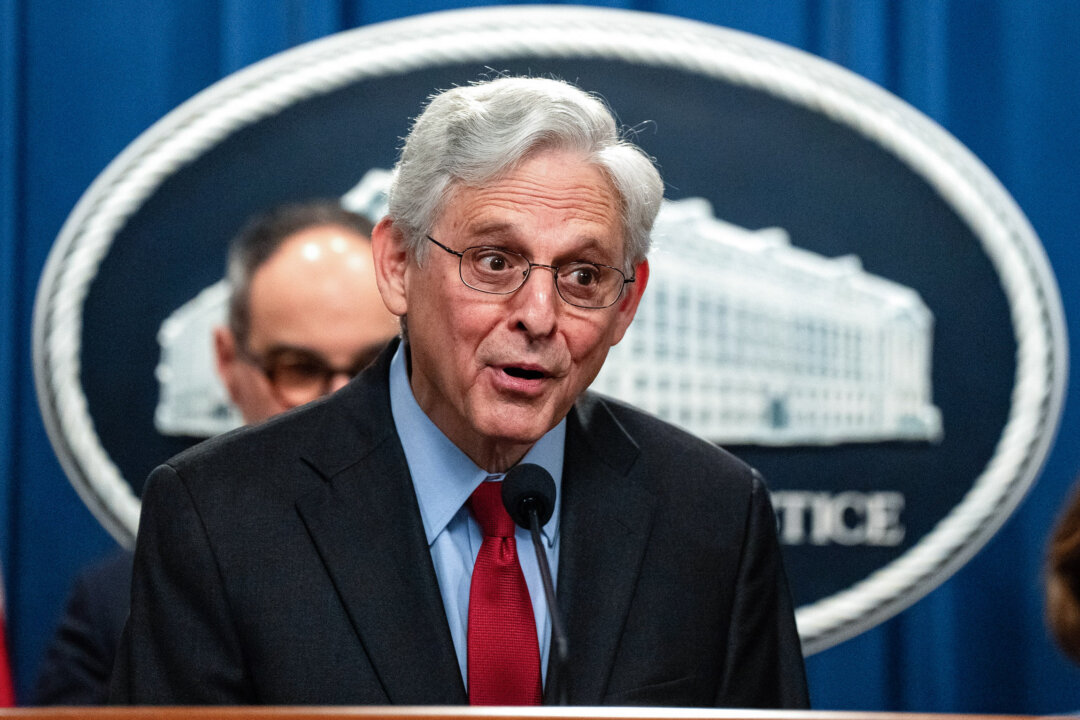The total number of plaintiffs has come to 41, including the DOJ, District of Columbia, and 39 states.
Ten states have joined the Justice Department’s (DOJ) ongoing lawsuit accusing Live Nation Entertainment and its subsidiary, Ticketmaster, of engaging in illegal, anticompetitive behavior in agreements surrounding its concerts.
An amended complaint by the DOJ was filed in the Southern District of New York on Aug. 19, bringing the total number of plaintiffs to 41. That number includes the District of Columbia, the DOJ, and 39 states—including the 29 who joined the initial complaint in May.
In the May complaint, Attorney General Merrick Garland accused the entertainment company of pushing up costs for fans as well as artists.
“We allege that Live Nation relies on unlawful, anticompetitive conduct to exercise its monopolistic control over the live events industry in the United States at the cost of fans, artists, smaller promoters, and venue operators,” he said.
“The result is that fans pay more in fees, artists have fewer opportunities to play concerts, smaller promoters get squeezed out, and venues have fewer real choices for ticketing services. It is time to break up Live Nation-Ticketmaster.”
Live Nation called the DOJ’s claims “absurd” and has since asked New York Judge Arun Subramanian to dismiss the lawsuit for a variety of reasons, including that case law negates the allegation that their conduct is illegal. The state-related allegations, it said, were “threadbare,” improperly presented, and involved time-barred claims.
A Live Nation spokesperson told Reuters that in the company’s view, the lawsuit “still won’t solve the issues fans care about relating to ticket prices, service fees, and access to in-demand shows.”
“We look forward to sharing more facts as the case progresses,” the spokesperson said.
According to the DOJ, the company set up exclusionary contracts with venues, restricted artists’ access to venues, and acquired competitive threats, among other things.
Its actions violated federal law in addition to state antitrust laws in Texas, Virginia, Tennessee, South Carolina, Rhode Island, Utah, and others, the amended complaint alleges.
Joining on Aug. 19 were the attorneys general of Vermont, Louisiana, Mississippi, Indiana, Kansas, Iowa, South Dakota, Nebraska, New Mexico, and Utah.The DOJ is asking the judge for a jury trial as well as purported remedies to halt anticompetitive conduct. More specifically, the plaintiffs are asking for civil penalties or civil forfeiture for the various states involved, as well as the divestiture of Ticketmaster from Live Nation Entertainment, of which it is a subsidiary.
Ticketmaster Entertainment, Inc., and Live Nation, Inc., merged to form Live Nation Entertainment in 2010 with the DOJ’s approval.
According to the DOJ’s latest complaint, Live Nation’s global revenue reaches $22 billion per year, with $18.8 billion in concert revenue in 2023.
The company “owns, operates, leases, has equity interest in, or has exclusive booking rights for or significant influence over 373 venues globally and more than 265 in North America,” the complaint reads.
“This includes more than 60 of the top 100 amphitheaters in the United States that Live Nation either owns or controls through long-term leases, or for which it has the exclusive right to determine who performs at the venue.”
The lawsuit follows a DOJ investigation into the practices of the ticket-seller after a class action lawsuit was filed last year by fans of singer Taylor Swift against Ticketmaster and Live Nation after they were unable to obtain tickets to the pop star’s “The Eras Tour.”
In the lawsuit, they alleged that Ticketmaster had such a giant monopoly over ticket sales that when its website crashed because of high demand, they were unable to obtain tickets to the concert.
Swift responded by calling the situation “excruciating.” Ticketmaster issued an apology over the debacle, and the lawsuit was dropped in August 2023.
The DOJ is pursuing multiple antitrust lawsuits, with a series of states’ backing the federal efforts. Each civil complaint alleges violations of Section 2 of the Sherman Antitrust Act, which prohibits the acquisition or maintenance of monopoly power through improper means, according to the DOJ.
The DOJ and multiple states just secured a victory in alleging that Google violated antitrust law in its search and search advertising market practices. Meanwhile, it’s pursuing another lawsuit against Apple with the support of 15 states and the District of Columbia.
Reuters and Alice Giordano contributed to this report.

